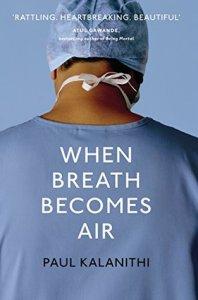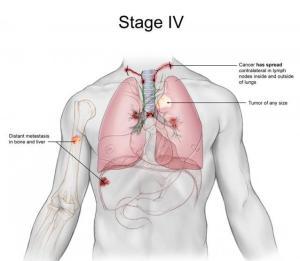
What’s it all about?:
THE NEW YORK TIMES NUMBER ONE BESTSELLER
THE SUNDAY TIMES NUMBER ONE BESTSELLER
SHORTLISTED FOR THE WELLCOME BOOK PRIZE 2017
‘Finishing this book and then forgetting about it is simply not an option…Unmissable’ New York Times
At the age of thirty-six, on the verge of completing a decade’s training as a neurosurgeon, Paul Kalanithi was diagnosed with inoperable lung cancer. One day he was a doctor treating the dying, the next he was a patient struggling to live.
When Breath Becomes Air chronicles Kalanithi’s transformation from a medical student asking what makes a virtuous and meaningful life into a neurosurgeon working in the core of human identity – the brain – and finally into a patient and a new father.
What makes life worth living in the face of death? What do you do when when life is catastrophically interrupted? What does it mean to have a child as your own life fades away?
Paul Kalanithi died while working on this profoundly moving book, yet his words live on as a guide to us all. When Breath Becomes Air is a life-affirming reflection on facing our mortality and on the relationship between doctor and patient, from a gifted writer who became both.
What did I think?:
When Breath Becomes Air is one of those books that I kept hearing great things about and it had been on my nonfiction shelf for much longer than was sensible before I got cross with myself and put it on my Nonfiction November TBR in an effort to ensure it was finally read! Well, thank goodness for buddy reads and Jennifer, a blogger bestie of mine who blogs over at Tar Heel Reader. She too had been desperate to read this book and sent me a message suggesting we should read it together. Of course I jumped at the chance. I count myself so very lucky to be able to buddy read with a quartet of wonderful bloggers and we always have such deep, meaningful and rewarding conversations about our reads that sometimes I wonder whether I should read every single book in my collection with a partner?!
Let’s be completely honest here. When Breath Becomes Air was never going to be an easy read. If you weren’t already aware, the book is a memoir following a respected neurosurgeon’s battle when he is diagnosed with cancer and, devastatingly, he passes away before he has a chance to finish the book. As a reader, you go into it knowing this cold, hard information but strangely enough (even though it’s ludicrous to say as you’re well aware of the ending), you feel a burst of hope throughout that the story might end up having a happy outcome. One of the worst things is reminding yourself that it doesn’t and that whole anticipation of the emotional trauma to come is nothing short of horrific.

Paul Kalanithi, author of When Breath Becomes Air, published posthumously in January 2016.
This wasn’t an absolutely perfect read for me – there were points where Paul is describing his college years that I’m sad to say, dragged slightly but one thing I will take away from this astonishing memoir is how poignant and gut-wrenching his journey was whilst battling stage IV metastatic lung cancer. He had this incredible lust for life and his passion for literature and writing really made me feel warm towards him as an individual. I also appreciated how he talked about his relationship with his wife and about himself as a person. There were flaws, there were issues but his brutal honesty about this made me respect him even more and believe in the authenticity of what he was saying.
When Breath Becomes Air is truly an evocative and heart-breaking read. I admired the determination with which Paul continued with his career despite having such a life-altering diagnosis and how he continued to achieve great things despite being racked with pain as the cancer slowly ravaged his body. I even found myself getting frustrated at times, particularly in the beginning when he suspected something was wrong with him but was too fearful to get it confirmed by another medical professional. Would he have been in a different situation if he had been diagnosed sooner? Probably not, his cancer was particularly invasive and aggressive but the thought of it made my stomach churn.

The most distressing parts of the book personally speaking came right at the end. Paul and his wife Lucy decide to have a child and Paul writes about holding her beside his hospital bed right near the end of his life. It filled me with sadness and despair, realising that that poor little girl would never really know her father although I think it’s wonderful that Lucy is keeping his memory alive in so many ways and that she will always have this book as a testament to her father’s life. Then there was *that* epilogue written by Lucy as Paul was unable to finish the book. Well, I was in bits by this time. I can’t imagine the bravery that it must have taken for her to write what she did and remain so hopeful for herself and her daughter’s future.
This is such an incredibly moving and thought-provoking read that I really believe will stay etched on my memory for years to come. If you’ve been putting it off like I had been, I very much recommend giving it a shot, it’s such an affecting reading experience. Thank you so much to Jennifer for reading it with me and the deep, fascinating conversation that we had – I don’t think I’ll ever forget it.
For Jennifer’s fabulous review, please see her post HERE.
Would I recommend it?:
But of course!
Star rating (out of 5):

Previous buddy reads with Jennifer @ Tar Heel Reader
Elmet by Fiona Mozley – check out my review HERE and her review HERE.
Advertisements
